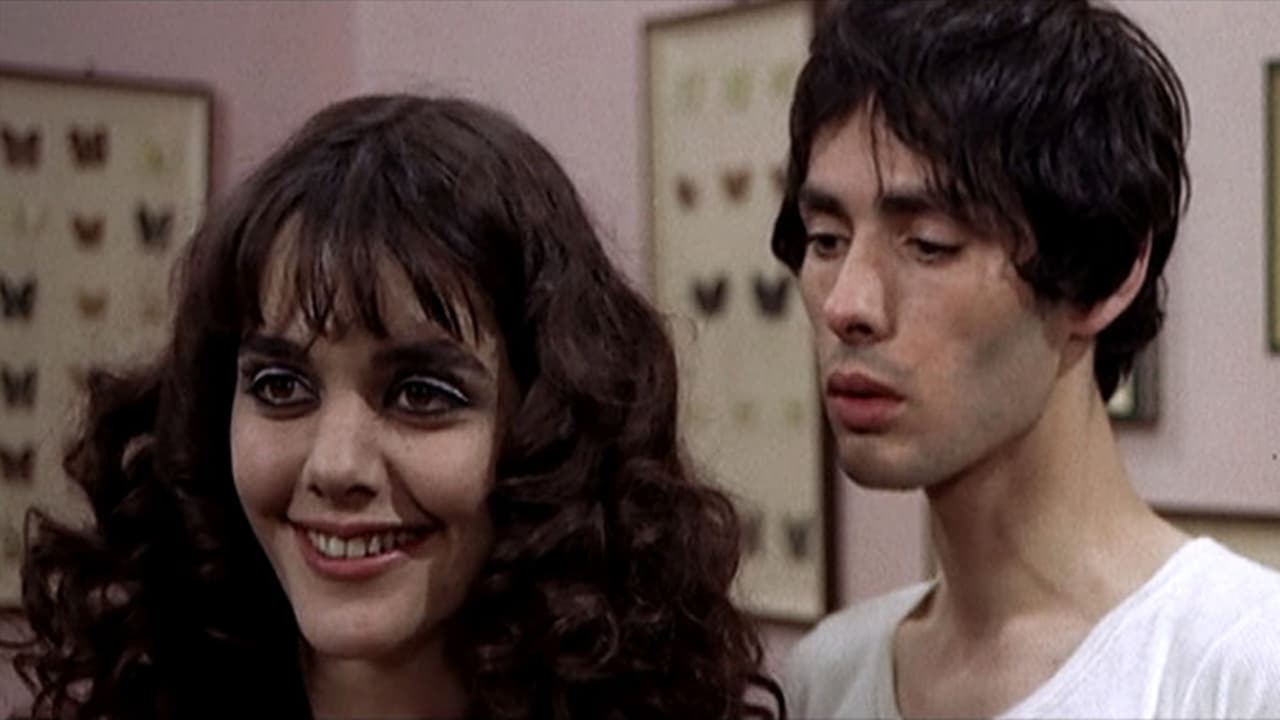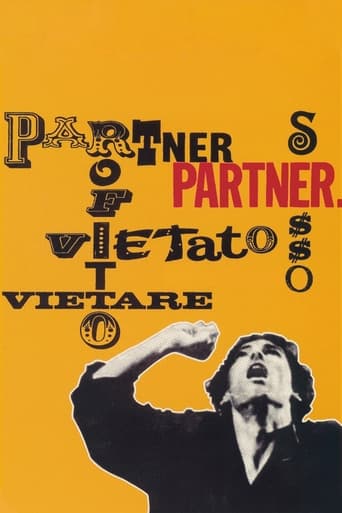Buffronioc
One of the wrost movies I have ever seen
Tyreece Hulme
One of the best movies of the year! Incredible from the beginning to the end.
Sienna-Rose Mclaughlin
The movie really just wants to entertain people.
Allissa
.Like the great film, it's made with a great deal of visible affection both in front of and behind the camera.
runamokprods
While the often noticed aping by Bertolucci of his hero Godard in this early film is quite true (even the film itself admits its debt to Godard right on screen), there is more here than mere imitation. Whether intentional or not I saw plenty of other influences from Bunuel, to the paintings if Rene Magritte. A loose, examination of schizophrenia; an inhibited intellectual young man spawns a separate self who is confident, aggressive and revolutionary. While vaguely based on Dostoyevsky's "The Double", this is very much it's own story, and a hell of a lot of fun. I found Bertolucci's surreal playfulness more inviting than most of Godard's work from that period. It asks many of the same questions, and has much of the same distain for modern consumer society, (and film narrative conventions) but does it with an absurdist sense of humor that give rise to some moments that now seem as much "Monty Python" as they are French New Wave. The most egregious Godard rip-offs can be annoying (sudden inappropriate music, etc), but they are for the most part mercifully brief. Mostly this is more influence and homage than theft, and creates a time capsule that still has relevance and interest, and pleasure in the watching. Pierre Clementi does a fine job playing the two different versions of the hero Giaccobe.
zetes
Bertolucci was heavily indebted to Godard and the other French New Wave directors in his sophomore feature, Before the Revolution. His third feature, Partner, has him follow Godard into his fin de cinema. Partner is a purely experimental film with little narrative. It's definitely a turn for the worst for Bertolucci. Thankfully he was drawn back into narrative cinema with his fourth film, The Conformist. Partner is worth seeing for fans of the director and New Wave enthusiasts. It has some interesting points. The minimal plot of the film has Pierre Clémenti playing a man with split personalities. Most of the rest of it is made up of random vignettes. Some are amusing, some are annoying. Some are just plain boring. Unfortunately, there just aren't enough amusing ones to make it an easy watch. Clémenti is excellent, and Bertolucci lives up to his reputation as one of the cinema's greatest visual minds. Stefania Sandrelli, who would go on to star in The Conformist, appears briefly with curly blonde hair. She doesn't do much, but she's gorgeous.
artihcus022
Bertolucci's third feature is one of his greatest films yet it's not very well known despite it's beautiful use of colour and 'Scope and a great and unique musical score from Ennio Morricone.Maybe because the subject matter or the theme of the film is very oblique and fairly intricate and more subtle than his later direct tackling of themes such as class, sex and identity and also unlike ''Fight Club'' which deals with the same themes it doesn't become schizophrenic and fall in love with what it is against. It also has one of the greatest performances of the 60's from Pierre Clementi, a French-Italian actor(who worked with Luis Bunuel and Philippe Garrel). In this film, he plays a student who is disaffected and alienated, his life is transformed when he meets his "double"(the film is a loose adaptation of the Dostoyevsky story ''The Double'') who is everything he isn't. Bertolucci doesn't attempt to explain the two Clementis and refuses to spell out that either is a hallucination(the conceit of the film as it develops is the difficulty to tell apart which is which).The film's tone is largely comic for most of the film including a hilarious and shocking send-up of Hollywood romances in the scene where Giaccobe(Clementi) and his beloved Clara(the luminous Stefania Sandrelli) plan to elope. But the tone of the film is also disturbing on other occasions as Clementi's character commits many acts of murder as the film moves along including one of the most upsetting and gruesomely cruel murder scenes in film history. The style of the film doesn't have a clear plot and is essentially a series of digressions. The film's style is intensely subjective and never abandons Giacchobe's point-of-view and some aspects of the film can be seen as dreams or hallucinations and others develop surprisingly including a suggestion of a narrative leap near the end. The music score by Ennio Morricone is avant-guarde enough to meet the challenge. The complete score played over the opening credits features four themes, each distinct and disjunctive, a quartet which during the film rotates in various junctures at various times sometimes diagetically appearing in the action other times working conventionally in the background. It's unlike any other score I have ever heard, beautiful and strange to listen to.The film is one of the most interesting works made at the late 60's and it's location footage of Rome in colour is fairly unique for an Italian film of that period. It is a film that is Bertolucci's most Nouvelle-Vagueish with Godardian monologues on theatre and cinema, digressions on Artaud, attacks on consumerism but it's also one which is fully Bertolucci rather than a work of a dilettante. The visual design is a curious mixture of German Expressionism(F. W. Murnau) and Hollywood 'Scope pageants(Nicholas Ray), while some of the visual and editing tricks seem to come from Hitchcock(red thunder from ''Marnie'') and of all people, Jerry Lewis(''The Nutty Professor'' - from the foregrounding of the soft red and cobalt blue throughout the film right down to the white fadeaway it ends).Bertolucci's exuberant non-realism allows him to directly confront the audience with the preoccupations and contradictions of Giacchobe and his generation all the while conveying the emotional confusion of his characters. It is perhaps dated to an extent since it's firmly addressed to the issues of the late 60's student unrest(May '68 happened when this film was in production) but it's also a film about confusion, about passivity, a psychological exploration of the main character's pathology and his charm and also sets up the themes that Bertolucci touches on ''Il Conformista''. The search for one's identity, the conflict between rebellion and conformism, the blurring lines in sexual and social politics. And it's all done in a manner that is very funny and light. The abrupt ending of the film which raises a lot of questions is one which the viewer can ponder endlessly for themselves. And Pierre Clementi's tour-de-force performance makes this just as much his film as it is Bertolucci's, anyone interested in a great performance by a charismatic if obscure European star that is emotional and simultaneously physical and sensual than this is the place to go.
darth-chico
After that it degenerates into an exercise in employing old art film cliches. Though he bases his movie on the Dostoyevsky story 'The Double', Bertolucci apparently has no message, and no original way to present it. By the end this movie has dragged you through a tedium of stupidity and indulgence. This is the kind of film that gives art movies a bad name. 4/10

